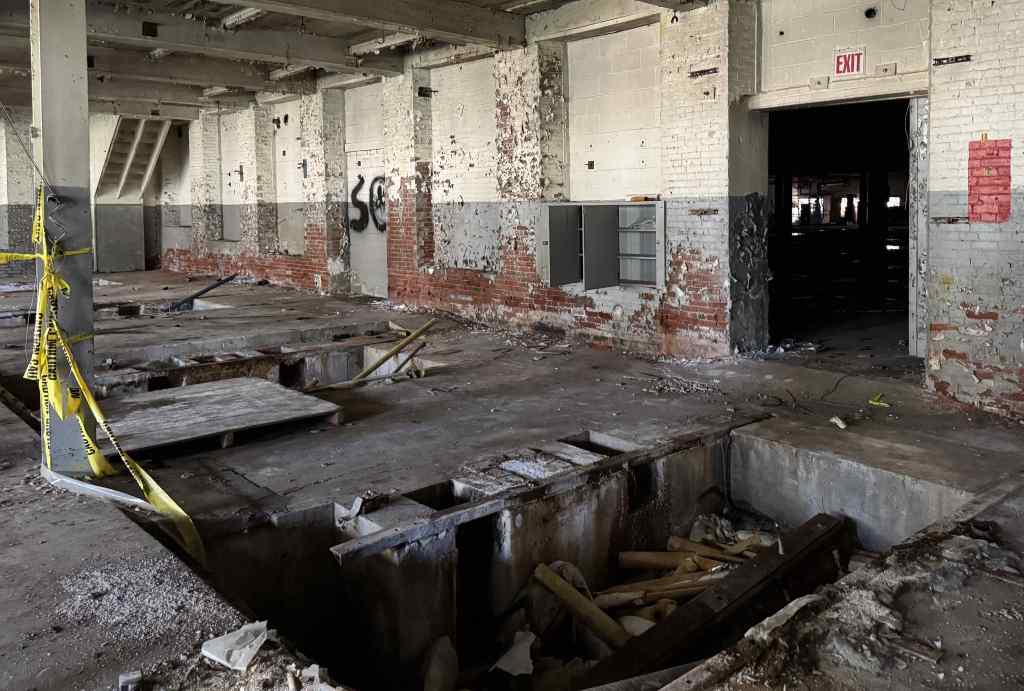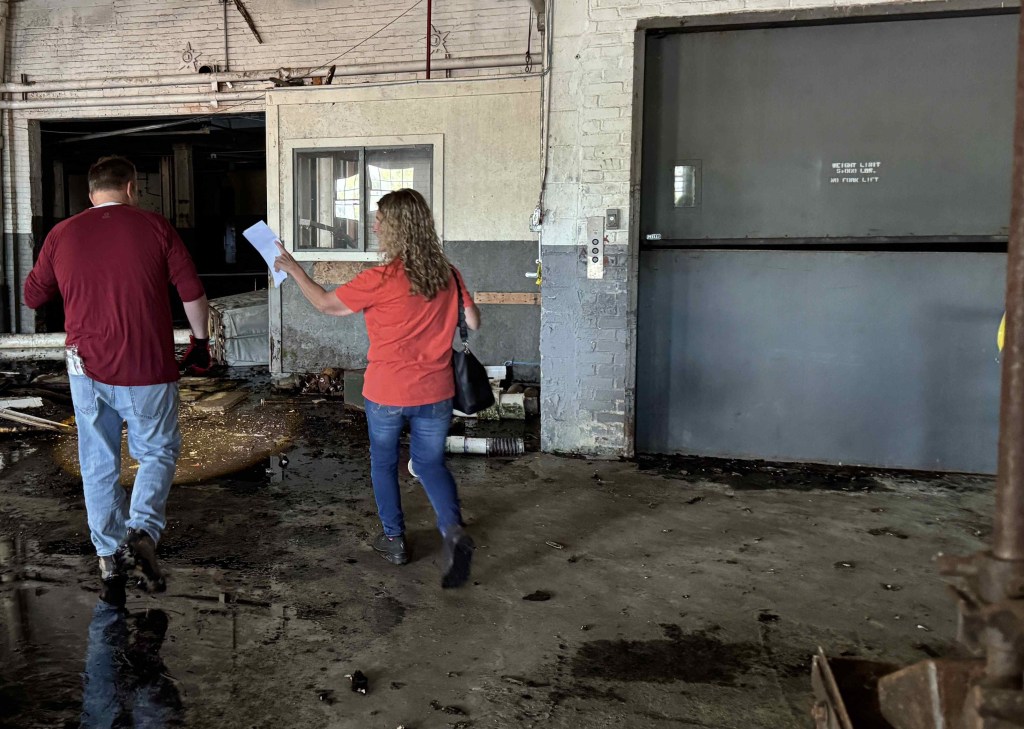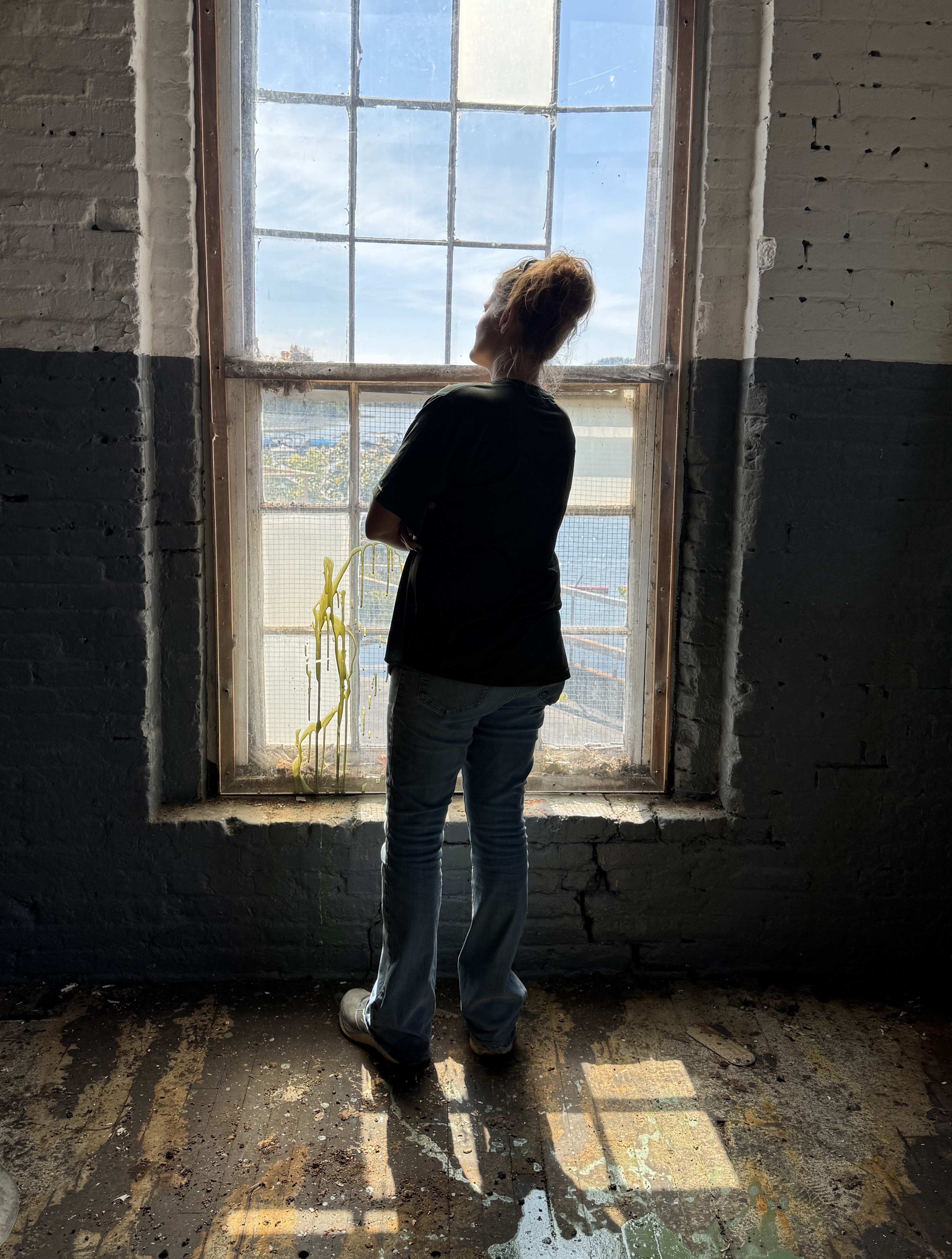
OXFORD — Former employees and neighbors of the old Robinson Manufacturing woolen mill took a tour of the 1800s warehouse Sept. 10 ahead of a planned redevelopment into affordable senior housing.
Over the past 20 years the King Street complex at the Thompson Lake outlet has sat vacant, was sometimes vandalized and languished into decay.
The Caleb Group, the Massachusetts developer that has completed similar projects throughout New England, including 15 in Maine, invited neighbors and former mill employees to see the warehouse one last time before it starts this fall with environmental abatement and demolition of buildings too far gone or with no historical value.
About 30 people were greeted by Suzanne Decavèle, real estate acquisitions director for The Caleb Group.

“We bought this site a couple of years ago,” Decavèle told them. “This will be a three-phase project … The first phase will be a housing component for 33 units, all one bedroom. The second phase will be another 44 units in the mill and boiler house.”
The apartments are for people aged 62 years and older and will utilize heat pumps and solar power, she said.
In her youth, Oxford Historical Society President Patricia Larrivee spent two and a half years earning piece wages in the mill’s spinning room.
“This is where I made my money,” she laughed, leading a small group across a concrete floor pooled with water. “We had about 20 machines; I spun thread and pulled bobbins.”
Larrivee recalled an oily mist that was sprayed over the fibers to cut down on the dust they produced. The first thing she would do when she got home after work was strip out of her clothes. “It just stunk so bad,” she said.
She pointed out a small cinderblock office in the middle of the floor.
“That was Bob Owens’ office. That’s where you’d get in trouble if you weren’t making enough money,” she said, before striding over to peer through a window. “He just had this little desk in there. And he would watch our work. We were at machines set up on a platform and he would walk around them.

“I hated it,” she admitted. “I worked here just long enough to get out and go to school!”
But despite the dirty and smelly nature of the work, Larrivee said the Robinson family, which owned and managed the mill for close to half a century, were good employers and paid good wages.
“They cared about their workers and this community,” she said. “My whole family worked here.”
Decavèle and her development team met with the Oxford Historical Society early on and went through the process of having the mill listed on the National Register of Historic Places. It was Larrivee, Decavèle said, who requested a walk through the old brick warehouse.
“There is still some equipment in one of the buildings to be (demolished), that the historical society may be interested in taking,” Decavèle said.

It would enhance the textile exhibit already displayed at the nearby Kay House Museum, the society’s headquarters on Pleasant Street.
Among the artifacts in the historical society’s collection are some belonging to the Robinson family, old pictures of the mill and employees, and a Union Army Civil War blanket presumed to have been produced at the mill.
“This donated blanket has the same dye lot as what the Robinson Mill was producing at that time,” Larrivee said during a museum tour last summer.
The Caleb Group received Planning Board approval for the redevelopment in March of 2024. Since then it has completed federal and state permit and grant applications to start work at the site and is in the bidding process with general contractors.
“This project is going to help revitalize Oxford,” Larrivee said. “We have a lot of seniors who need affordable housing. As they sell their homes it will attract younger families to move to the area. It’s similar to what the Robinsons did, in looking after our community.”

We invite you to add your comments. We encourage a thoughtful exchange of ideas and information on this website. By joining the conversation, you are agreeing to our commenting policy and terms of use. More information is found on our FAQs. You can modify your screen name here.
Comments are managed by our staff during regular business hours Monday through Friday as well as limited hours on Saturday and Sunday. Comments held for moderation outside of those hours may take longer to approve.
Join the Conversation
Please sign into your Sun Journal account to participate in conversations below. If you do not have an account, you can register or subscribe. Questions? Please see our FAQs.